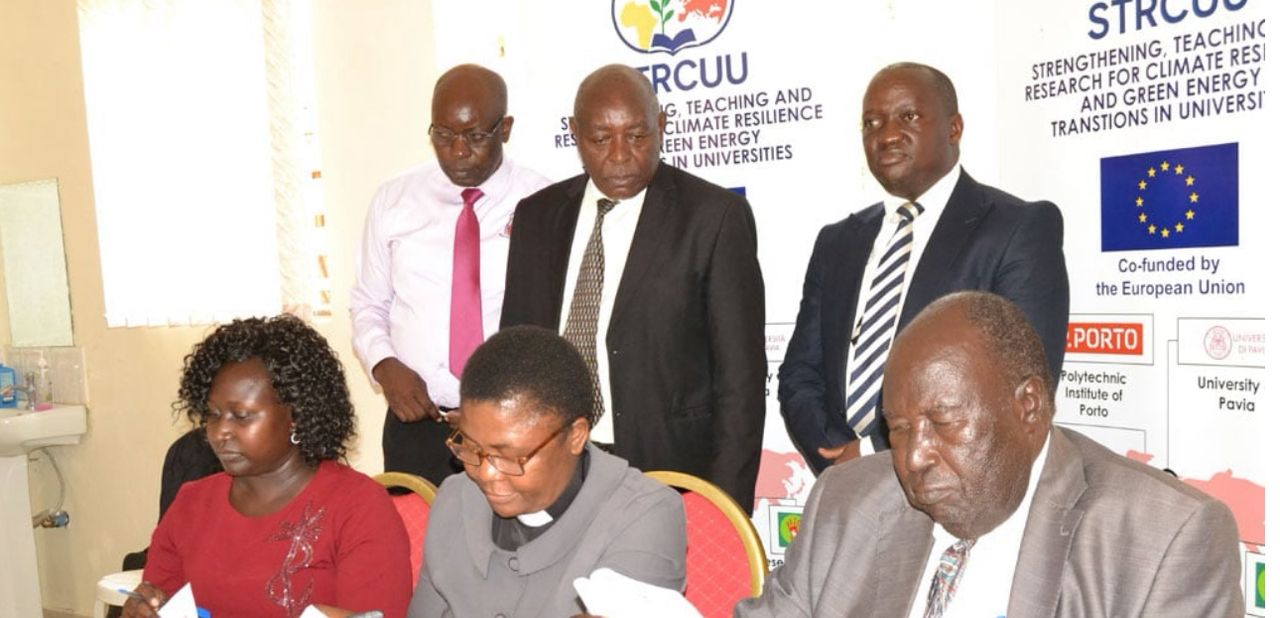Uganda’s efforts to mainstream climate-change education in higher institutions of learning have received a major boost with the launch of a Shs 1.665 billion programme designed to strengthen teaching, research and innovation in climate resilience at Ndejje University and Soroti University.
The two institutions lie within the country’s climate-vulnerable cattle corridor, a region frequently affected by droughts, floods and shifting weather patterns.
Supported by the European Union and a consortium of international partners, the initiative—known as the Strengthening Teaching and Research for Climate Resilience Capacities in Newly Established Universities (STRCUU) project—aims to equip universities with the knowledge, tools and technologies needed to respond to Uganda’s escalating climate challenges.
The Dean of the Faculty of Environment and Agriculture at Ndejje University, Dr. David Talengera, said the two universities experience similar climate shocks, making them ideal hubs for climate-resilience research and innovation.
“This programme will enable young universities to develop practical solutions shaped by our geographical realities. It positions our institutions to contribute meaningfully to national climate-change mitigation and adaptation efforts,” he said.
A key implementation partner, the Research and Education Agency (REA), will spearhead the scaling of green-energy and climate-resilience technologies generated through the project. REA Deputy Board Chairperson and a Principal Research Officer at the National Agricultural Research Organisation (NARO), Dr. Damalie Akwango, emphasized the agency’s commitment to ensuring quality delivery.
“To achieve the goals of the STRCUU project, implementers must plan effectively, identify real gaps and maintain close linkages with partner agencies. REA and NARO will support training, monitoring, communication and the integration of the project’s activities into university programmes while advocating government support to expand project gains,” Akwango said.
The Vice Chancellor of Ndejje University, Rev. Canon Prof. Olivia Nassaka Banja, welcomed the initiative, noting that universities must urgently redesign academic programmes to match the realities of a changing climate.
“Aligning our courses with climate-change needs is overdue and timely. Ndejje’s vast land and strong environmental programmes—from forestry to research and innovation—provide a solid foundation for this new direction,” she said.
The Vice Chancellor of Soroti University, Prof. Robert Ikoja Odongo, stressed the need for collective responsibility as global climate impacts intensify.
“We must incubate ideas and technologies that create a sustainable future. Our lecture halls, campuses and surrounding communities should reflect climate-conscious practices, from greening initiatives to sustainable agriculture and renewable-energy solutions,” she said.
The STRCUU project is backed by international institutions including the University of Pavia (Italy) and the Polytechnic Institute of Porto (Portugal). Its broader objective is to build a robust academic framework that enhances climate-change management, supports adaptive technologies and strengthens the resilience of communities.
Conservationists have urged universities to take a more active role in addressing the root causes of climate change. Uganda continues to face rapid environmental degradation, with forest cover dropping from 24 percent in 1990 to just 12 percent in 2025—amounting to an estimated three million hectares lost.
The STRCUU project is expected to serve as a model for climate-focused higher education in the region, positioning universities as key players in the national transition toward sustainable development.


